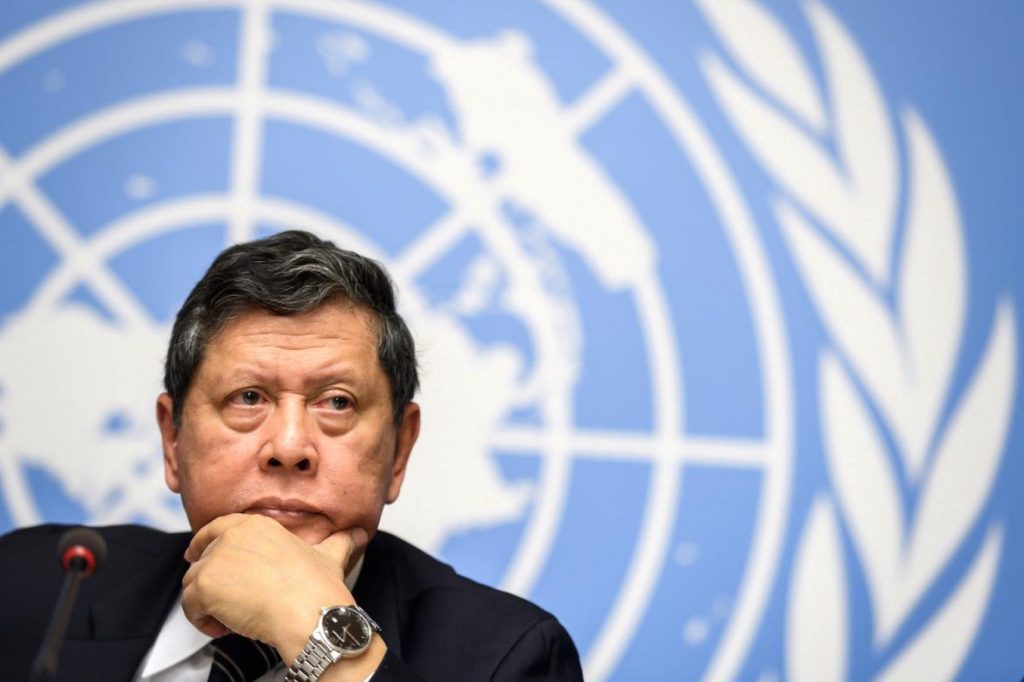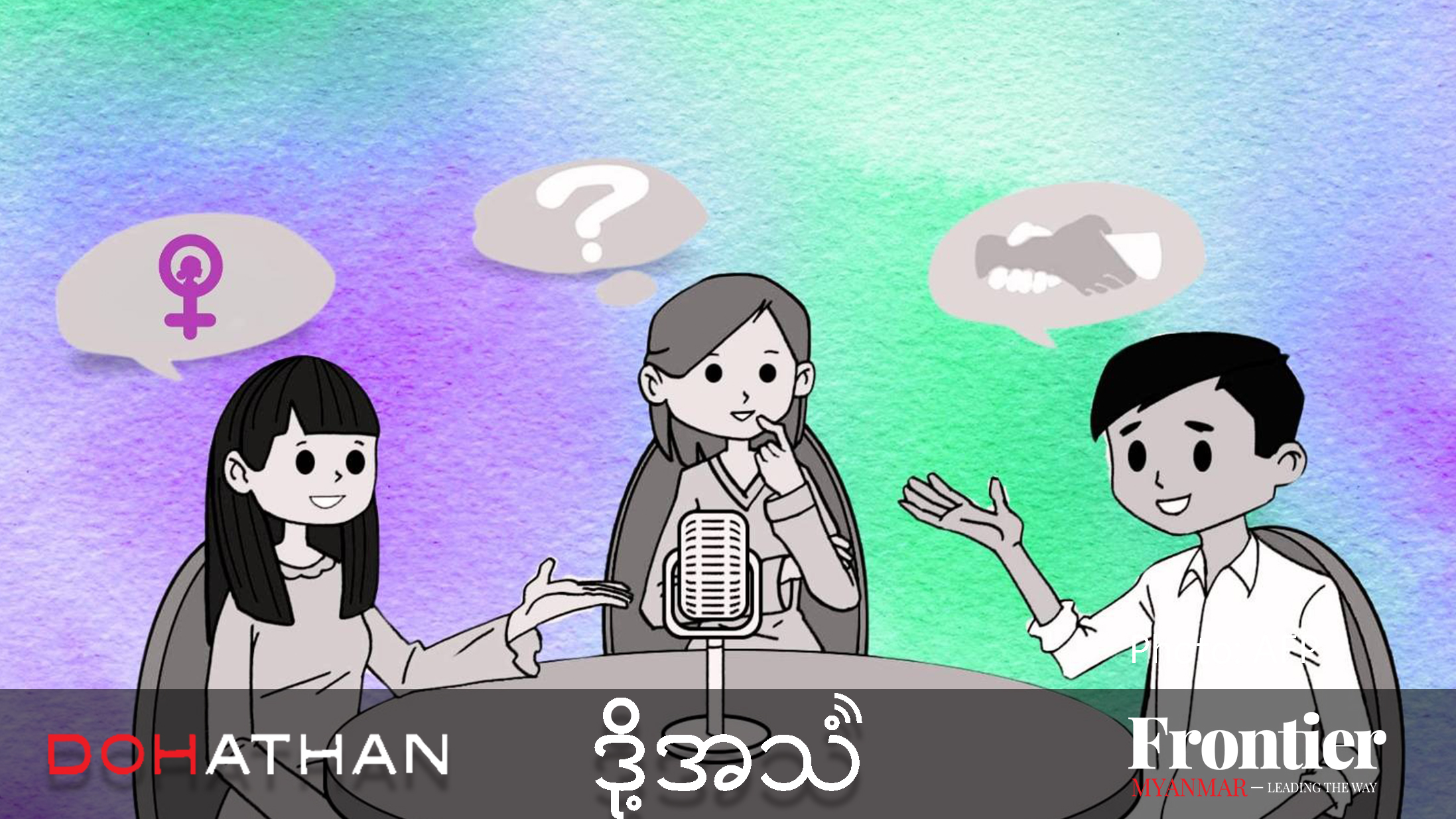By FRONTIER
YANGON — A United Nations panel that investigated human rights abuses in Myanmar has called on the international community to cut off all financial and other support to the Tatmadaw.
In a statement released in Geneva on May 14, the UN Fact-Finding Mission on Myanmar said Tatmadaw commanders needed to be isolated and brought before a credible court to answer charges of war crimes, crimes against humanity and genocide.
FFM chairperson Mr Marzuki Darusman said the measures were needed because Myanmar has not done enough to resolve the nation’s conflicts and protect human rights, including those of more than one million Rohingya who have been forced into exile.
“There has been no movement toward a resolution of the crisis,” Darusman, a former Indonesian attorney-general, said at the end of a 10-day visit to Bangladesh, Malaysia, Thailand and Indonesia that began on May 3. “The situation is at a total standstill,” he said.
Support more independent journalism like this. Sign up to be a Frontier member.
The FFM was appointed by the UN Human Rights Council in March 2017 to investigate allegations of human rights violations and abuses by the Tatmadaw and other security forces.
A 444-page report submitted by the FFM to the HRC in September 2018 documented how Myanmar’s military “brutally and systematically violated the human rights of ethnic minorities throughout the country.”
The report focused on the “clearance operation” launched by the Tatmadaw in response to attacks by Islamic extremists in northern Rakhine State in August 2017 that sent more than 700,000 people fleeing to safety in neighbouring Bangladesh.
The government and the Tatmadaw deny allegations that the security forces killed thousands of Rohingya civilians, raped and sexually abused women and girls and burned their villages.
Darusman said that operations conducted by Myanmar security forces in Rakhine State in 2017, as well as earlier violence directed at Rohingya communities there in 2012 and 2016, were not isolated incidents. Rather, they “were the result of structural problems fueled by the absence of a political and legal system that is willing to accommodate diversity. This is an issue affecting ethnic minorities throughout Myanmar,” Darusman said. “Any solutions should directly address the structural problems.”
Darusman also said that Myanmar’s government should “focus on the real betterment of the remaining Rohingya community in Myanmar.”
Mr Christopher Sidoti, one of the FFM’s three members, said it had “seen no evidence that the Myanmar government is acting in good faith to resolve the crisis or facilitate the safe return of refugees.”
The situation demanded “an increase in international pressure,” Sidoti said.
“Due to the gravity of the past and continuing violations, attention must be given to the political, economic and financial ties of the Myanmar military – to identify who and what should be targeted so we can cut off the money supply as a means of increasing the pressure and reducing the violence,” he said.
The trip to the region by the FFM included opportunities to meet members of the Chin, Kachin, Shan and Rakhine communities, who spoke of their fears of returning to Myanmar because of continued violence and fighting, the statement said.
“Meeting with these different ethnic communities only underscored our findings that the Tatmadaw has over time committed similar atrocities against many of the ethnic groups living within the borders of Myanmar,” said FFM member, Ms Radhika Coomaraswamy.
“Acknowledging that human rights violations have been committed, holding people accountable and reforming the Tatmadaw is the only way forward,” Coomaraswamy said.
“The repatriation of refugees remains remote unless and until the Myanmar government takes concrete measures to provide conditions that are conducive for voluntary, safe, dignified, and sustainable return, including full and equal inclusion in Myanmar society,” she added.
The FFM reiterated its interest in engaging in dialogue with the Myanmar government to advance accountability, ensure justice and promote the right to safe, voluntary and dignified return, the statement said.
The FFM’s trip included a meeting with Rohingya refugees at the sprawling Kutapalong camp at Cox’s Bazaar in Bangladesh.
Darusman told the refugees that when the FFM’s mandate expires in September 2019, it will hand over its information, documentation and evidence to the new Independent Investigative Mechanism on Myanmar. The IIIM was established by the HRC to facilitate and expedite fair and independent criminal proceedings against perpetrators of crimes under international law in Myanmar.
“In short, this is not the end of the story,” Darusman told the refugees. “Please have hope that this will lead to eventual accountability of those who are responsible for what took place against the Rohingya community.”







